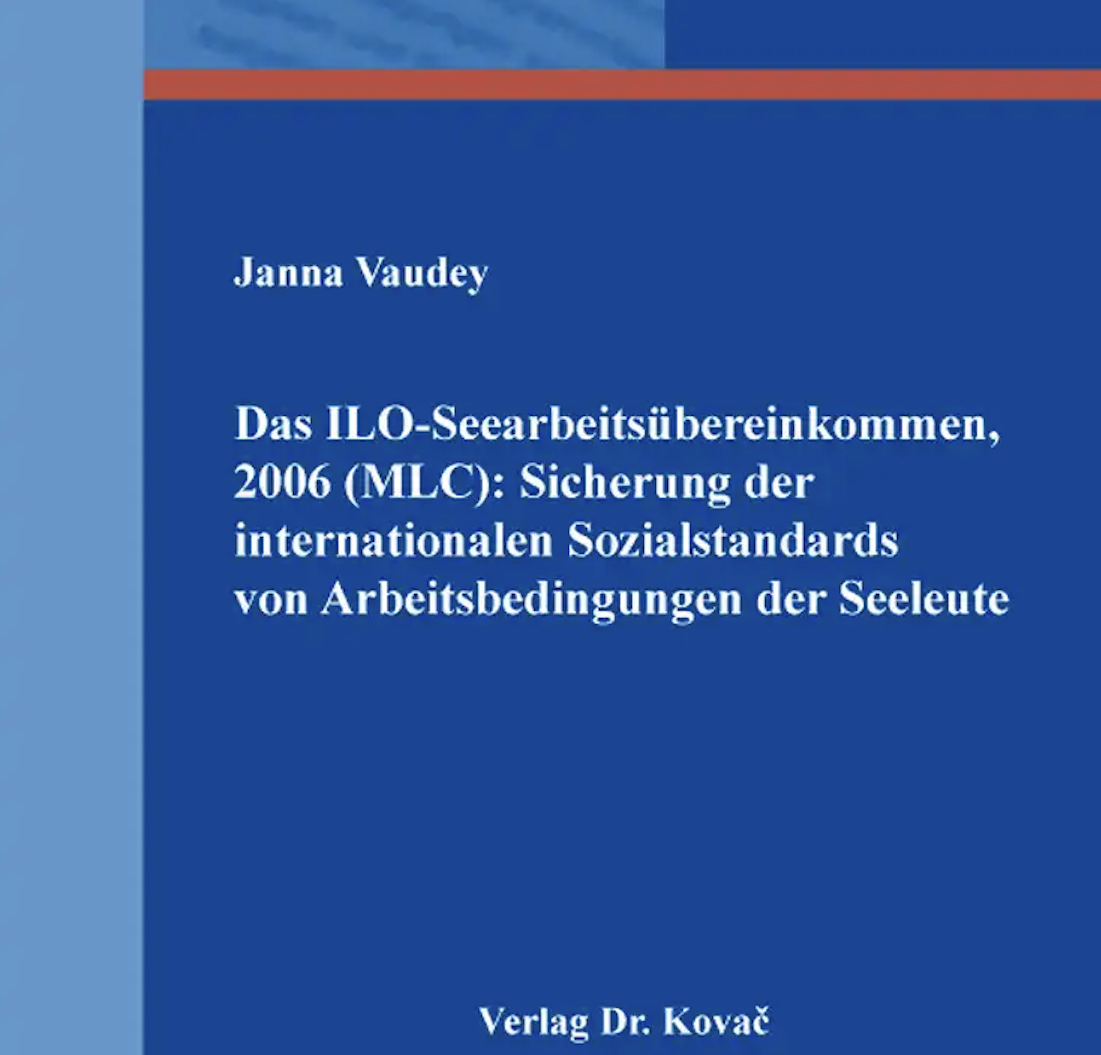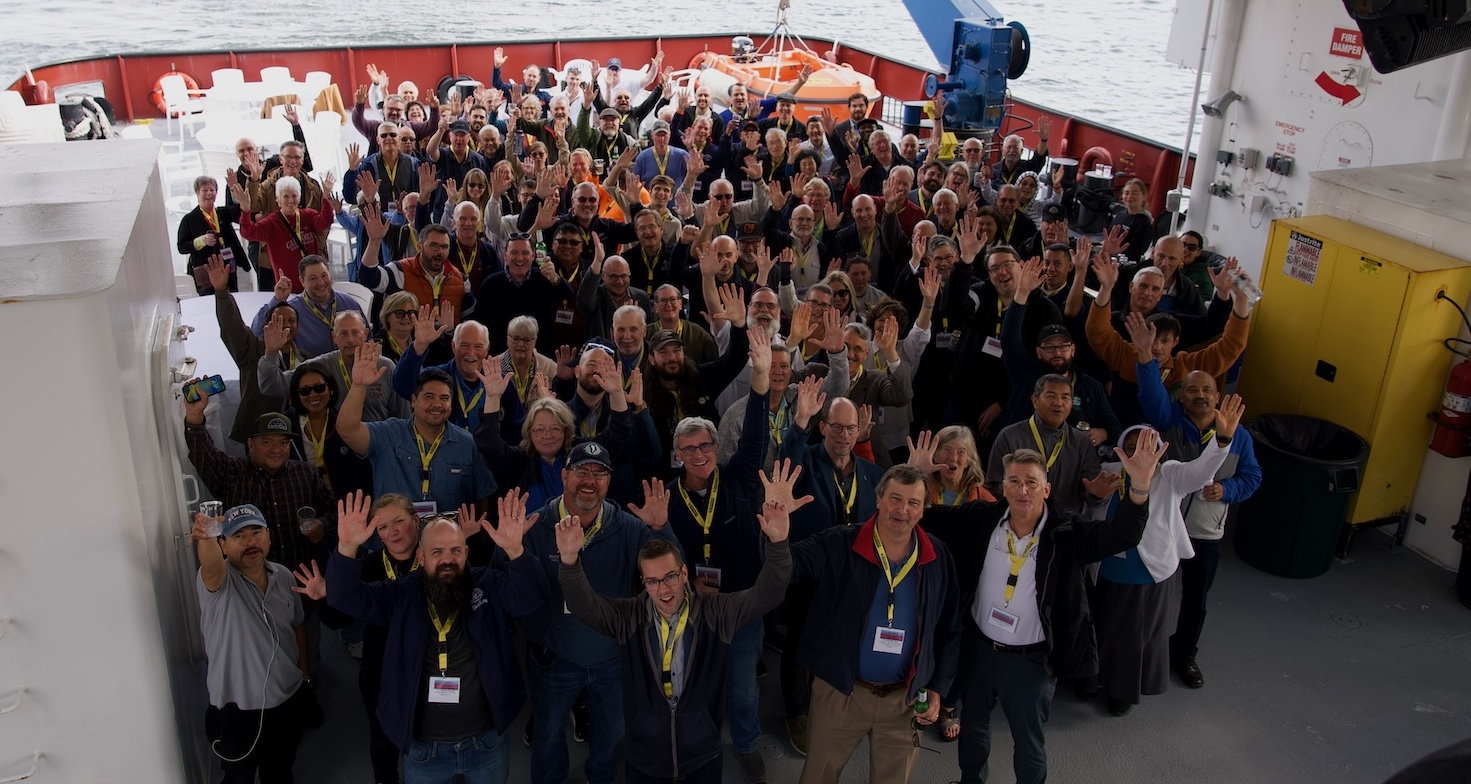Review by Dr. Jason Zuidema, NAMMA
Janna Vaudey, Das ILO-Seearbeitsübereinkommen, 2006 (MLC): Sicherung der internationalen Sozialstandards von Arbeitsbedingungen der Seeleute. Hamburg: Verlag Dr. Kovač, 2022.
This German-language book is a revised edition of a doctoral dissertation submitted in 2020 in the Faculty of Law at the University of Hamburg. Janna Vaudey, now Advisor to the Secretary General of the Deutsche Seemannsmission eV, looks at the employment relationships of seafarers, whose workplace is one of the most dangerous in the world (1) and for which the labour market is open (2). Due to all the layers of ownership and management in shipping there is “a lack of legal certainty for seafarers.”(2) Therefore, writes Vaudey, “they are…an employment group that is particularly in need of protection in terms of health and labor law.”(2) A key document to protect seafarers is the Maritime Labour Convention (2006). Vaudey’s book seeks to understand whether the MLC,2006 “effectively protects”, “fills the existing gaps”, and “solves the existing problems” for seafarers. (4) Or, conversely, does the MLC, 2006 actually create new problems and difficulties?
The early chapters of the book chart the legal framework of seafarers’ rights, including the documents that provided the basis for the MLC,2006. Vaudey traces especially the work of the IMO and the ILO over the previous decades that worked on the rest of the landscape of seafarers’ health and safety. Later chapters begin to plot the effectiveness of international instruments, but also the wide array of other supports that seafarers might enjoy. Vaudey devotes a chapter to the work of international organizations like the ITF and seafarers’ welfare charities, including the members of ICMA.
Chapters 5 and 6 dig deeply into the text of and challenges to the MLC,2006. In chapter 5, Vaudey seeks to understand problematic issues like seafarer abandonment, the discrepancies in hours of work and rest, and of mental and physical stress. Chapter 6 illustrates these issues in depth using the specific examples of Germany and Panama. Vaudey’s concern is to view whether different member states go beyond the minimum requirements. The analysis of law and documents in earlier chapters is followed in chapter 7 by results from interviews of seafarers.
In a concluding chapter 8, Vaudey notes the issues substantially resolved by the MLC,2006, but especially those issues that still remain. The outstanding issues that remain contentious include hours of work and rest, vacation, and minimum manning levels. Not enough is said in the MLC,2006 about other issues, says Vaudey, including on section 4.4-Access to Shore-Based Welfare Facilities. Vaudey noted that from country to country the state of these welfare facilities varies considerably and there is a general lack of financial resources from both state and other stakeholders (462).
All of these contentious issues and those not fully treated in the MLC,2006 were highlighted in the COVID-19 crisis (470). Even the clear protections guaranteed by the MLC,2006 were routinely denied by states who were signatories to the convention. Myriad cases of denied medical care and problems with hours of work and rest, contract length, shore leave, crew change, repatriation, and health and safety were reported for many months during the pandemic. All this pointed to the weakness of the MLC,2006 enforcement in a time of force majeure. (478)
Vaudey’s book is an important addition to discussions about the implementation of the MLC,2006 around the world. Though severely tested during the COVID-19 crisis, the MLC,2006 remains a critically important instrument to defend the rights of seafarers and support their welfare.
The book can be ordered here.




